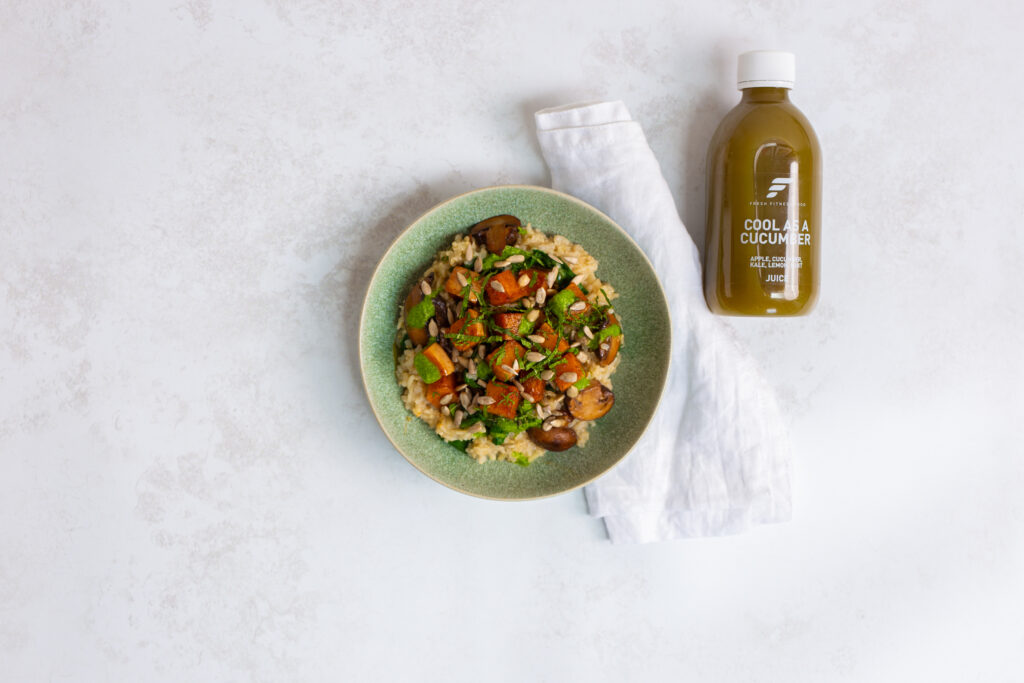World Vegan Day – 3 Key Tips for a Vegan Diet

1st November marks World Vegan Day and the start of World Vegan Month.
World Vegan Day 2023 is a global celebration of veganism and its positive impact on the planet, animals, and human health. It encourages people around the world to explore and embrace a vegan lifestyle and serves as an opportunity to educate the public about the benefits of veganism, raise awareness about animal rights, and promote sustainable and compassionate choices.
As a result of this, we’ve put together 3 key tips for a vegan diet.
1. How to get enough protein from a vegan diet
This is often a common concern or consideration regarding going/being vegan. Although it requires a little more careful planning, it is possible to get adequate protein in most instances!
Consuming adequate protein as an omnivore is often quite easy, as all animal meats are rich in protein. When you remove these protein-rich foods from your diet, things can get trickier.
Protein sources can be classified as either complete or incomplete. Complete protein sources contain all of the essential amino acids needed by the body. In contrast, incomplete protein sources tend to be low or lacking in one or more of the amino acids. Animal-based protein sources are all complete, whereas most plant-based sources are incomplete, aside from a small number. These include quinoa and soy.
There are a whole host of healthy vegan protein sources, including beans, chickpeas, lentils tofu and tempeh to name a few.
As there are few complete vegan sources of protein, combining incomplete proteins to form a complete protein is a worthy consideration. Examples include:
- Nuts or seeds with whole grains, so peanut butter on whole wheat toast
- Whole grains with beans, so beans and rice or hummus and pita bread
2. How to ensure a vegan diet is balanced
To ensure your vegan diet is balanced, variety is key! Aim to choose a wide range of colourful, whole-plant foods to ensure a well-rounded intake of nutrients.
Try to combine different plant foods to ensure a mix of protein, carbohydrates, and healthy fats.
Ensure you’re getting a complete protein by combining some form of cereal or pulse or eating one of the naturally occurring complete plant-based proteins.
There are a few nutrients which can be considered harder to obtain on a vegan diet e.g. iron and calcium. Obtain calcium from fortified plant milks, leafy greens and tofu. When it comes to your iron needs, include lentils, quinoa, and fortified cereals.
If you are removing animal products entirely, consider supplementing with Vitamin B12 and Omega-3.
3. How to avoid vegan ‘junk’ food
Vegan isn’t synonymous with being healthy, as there are plenty of ‘unhealthy’ items, which are often considered to be ‘junk’ food.
Reaching for products of this kind is often a quick and easy option. Don’t get me wrong, from time to time, there is no huge harm in having the odd item which may be considered ‘junk’. However, it should undoubtedly not form the basis of your diet or be included very frequently. This is because you will likely be reducing the quality of your diet as a whole, which will quickly catch up with you.
Understanding how to form the basis of a balanced vegan diet, can help you avoid or minimise your intake of vegan ‘junk’ food. This is of course assuming that you have the time, resources and cooking skills to support it!
If you’re thinking of giving it a go, we’ve put together some guidance on how to start a vegan diet here.
If cooking is simply not your forte, don’t panic, that’s exactly why we’re here! At Fresh Fitness Food, our bespoke, time-saving vegan meal plans are designed by top nutritionists and tailored to the unique health and fitness goals of people just like you, and delivered daily to your door!
To discuss which nutrition plan is right for you, book a call with our in-house nutrition team here.
Order today and start smashing your goals with personalised nutrition!
Get £50 off a 5-day trial with code: BLOG50. Start your trial here
- The Comfort of Tradition: Why We Crave Holiday Foods - December 23, 2024
- Is There a Place for Ultra-Processed Foods in Your Diet? - November 29, 2024
- Tempeh and Quinoa Power Bowl Recipe - November 7, 2024